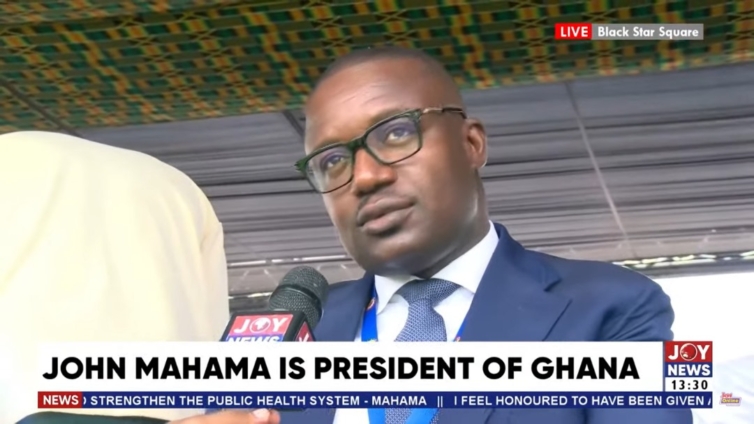The Member of Parliament (MP) for the Yapei-Kusawgu constituency, John Abdulai Jinapor, has warned that the country faces a serious energy crisis, as there is currently insufficient fuel in stock for power generation.
According to him, the outgoing Nana-Addo-led government failed to make necessary fuel procurements despite repeated warnings and calls to do so.
"I have bad news for you. As of today, the confirmation we are receiving is that we have only five hours' worth of fuel left," he said.
He added that the country’s current fuel supply for power generation will not last more than two days. "If you look at the heavy fuel oil and diesel fuel, we don't have enough to last two days. So, in two days' time, we are likely to run out of fuel."
“This administration has not placed any fuel orders as we speak,” he concluded.
He was speaking with JoyNews after the swearing-in ceremony of the President John Mahama in Accra on January 7.
Ghana's energy mix and consumption requirements
Ghana's energy landscape is characterised by a diverse mix of sources, including hydroelectric power, thermal energy (natural gas, crude oil, and diesel), solar, and other renewables.
The country's energy policy aims to ensure reliable and sustainable energy supply to meet its growing demand, driven by population growth, industrialisation, and urbanisation.
Hydropower has historically been the backbone of Ghana's electricity supply, contributing around 30-40% of the energy mix. The Akosombo, Kpong, and Bui dams are the primary hydropower stations. However, reliance on hydropower has reduced over the years due to the unreliability of rainfall patterns.
Thermal plants powered by natural gas, light crude oil, and diesel account for about 50-60% of Ghana's energy mix. Natural gas has become the preferred fuel, with domestic gas supplies from the Jubilee and Sankofa oil fields complemented by imports from Nigeria through the West African Gas Pipeline (WAGP).
Renewable energy contributes a smaller portion (around 1-2%) of the energy mix. Ghana has been gradually increasing its investment in solar energy through projects like the VRA Solar Plant and small-scale distributed solar systems.
Ghana’s total energy consumption is estimated at around 15,000 GWh annually, with electricity demand growing at a rate of 6-10% per year.
Peak electricity demand is around 3,800 MW, while the installed generation capacity exceeds 5,000 MW, suggesting surplus capacity. However, actual available capacity fluctuates due to maintenance, fuel supply issues, and other operational challenges.
Latest Stories
-
Africa World Airlines expands regional operations to Ouagadougou from July 1
1 minute -
The 60 MPs believe Bawumia is NPP’s best bet for 2028 – Dominic Nitiwul
8 minutes -
Frederick Asare parts ways with Asante Kotoko
26 minutes -
97% of agencies faced major creative campaign challenges -PMI Survey
29 minutes -
Yaw Nsarkoh calls for overhaul of political parties to safeguard Ghana’s democracy
31 minutes -
NPP vows to enforce discipline ahead of January 2026 presidential primary
39 minutes -
Belgian league was a good opportunity to show my talent – Lawrence Agyekum
40 minutes -
Yaw Nsarkoh decries decline in media standards
51 minutes -
Yaw Nsarkoh calls for urgent chieftaincy reforms to strengthen Ghana’s democracy
58 minutes -
Intellectuals must reclaim their role in strenghtening democracy in Ghana- Yaw Nsarkoh
1 hour -
Yaw Nsarkoh slams Ghana’s ‘Santa Claus Democracy’, warns against over-monetised politics
1 hour -
OSP charges four persons over attempted hijack of rice containers at Tema Port
1 hour -
Chiefs and MMDCEs to lead the charge against galamsey – Lands Minister
2 hours -
EC rules out immediate re-run of Ablekuma North parliamentary polls, says only 3 polling stations in dispute
2 hours -
Justice Ackaah-Boafo set to face scrutiny in high-stakes vetting tomorrow
2 hours

